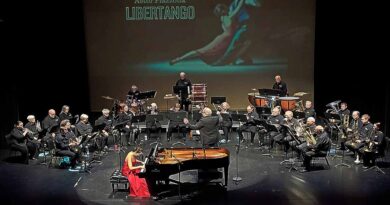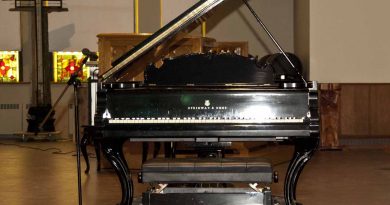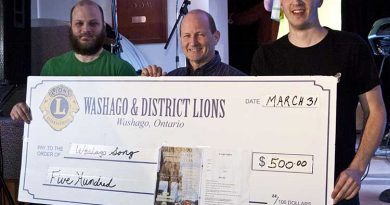This Week In Art/Culture/Entertainment
By John Swartz
The end is in sight. You just need powerful binoculars and an idea of which direction to look for it. The only thing artists know for certain is their careers have ground to a halt. Unlike other industries, it’s not some of them, it’s all of them. For the many their day jobs are gone too. Even when things loosen up a bit there is little possibility many artists will be able to bounce back as simply as unlocking the door and flipping the closed sign over to open.
If you think physical distancing is going to go away in the short term, you aren’t paying attention. There won’t be concerts. Well, there may be smaller ones held in bigger venues so we don’t have to sit next to each other, there may be small openings in galleries, but not of Starry Night proportions. I think book launches and reading will be safe though.
This sector of the economy is not unlike many others, but at the same time entirely different. There are few artists working at their craft for big business and those folks will be fine (judging by the number of new job postings that crop up daily). The majority are small business operators with shoestring budgets and revenues. I can’t think of many other types of businesses that operate on a love of the work plan. While artists need consumers, it is not consumer driven.
Almost everything happening in Canada in arts does so only with government investment and all three levels of government have grants and loan programs. We do not have a big enough market in this country to support even the most well-known artists solely on ticket revenue (broadly applied to included sales of art produced, licensing, and any other way an artist can earn money). Art is deception for entertainment value, but deception also skews public perception of the degree of success. One can look like a million bucks on stage, and generally they have to, but the closet at home leaves much to be desired.
The truth is our one percent of artists don’t qualify for middle class standing in the arts south of the border. Us seat sitters have a warped perception of what constitutes a healthy arts sector. This is the major failure of those who argue against tax dollars going to grant programs; they cite how successful artists are – alluding to the Beyonces and Taylor Swifts, or even Canadians like Drake and Justin Bieber (who made nickels in Canada compared to dollars in the U.S.) – implying itis the norm when the truth is the only place on earth artists can make bank on their work is in the United States – nowhere else.
Every country has government funding for artists, and most much better than Canada. Unfortunately our politicians read the same People Magazines as those arguing not to spend tax dollars and have the same views of the arts, reluctantly acknowledging evidence to the contrary when it is produced and throwing token amounts on the table.
We went through this in Orillia until 2006 when a study was done proving a very large chunk of our local economic activity was derived in arts. We saw progress for a time until a later council thought they knew better than the evidence and reversed some of the progress. Things have been improving again with most recent councils, but this thing we are going through right now is way beyond our local government’s ability to step in a provide financial help.
The Ontario Government on the other hand has deeper pockets. I know, there are holes in those pockets. But it surely wouldn’t look good or compassionate if they threw money around to everyone else and left artists begging at the door.

The Ontario Arts Council has some new information on their financing programs. They have an update page of latest policy changes for those in or familiar with their system. They also have a page for frequently asked questions and application guidelines. They also have a page outlining the Artists in Communities and Schools Projects application deadline changes. It seems to me the latter might be a thing to explore for some of our artists as a way to create work for themselves they may not have given much thought to before.
The province is also partnering with the music industry for musicians to get a one-time $1,000 performance fee in order to help fund online streaming. Apply here.
The CBC has a new program too. It’s called the Creative Relief Fund and it’s a $2 million fund they will use to develop original storytelling among the various avenues (radio, TV, online, etc.) they have. They have separated play writing and documentary production into different application streams. There is a deadline of April 24, so go have a look now.
For those of you who argue the CBC shouldn’t be using funds like this, where do you think they get their content from? Many of their regular sources are in production shutdown right now and I see this as a way to keep the people, who come up with content, the writers and authors, busy, dry and fed. It makes good business sense, rather than trying to put a larger budget together to restart things 4, 5 or 6 months from now.

The Orillia and District Arts Council has a webpage which will be live Friday here. It has a lot of links to funding programs from all levels and from private sources. They’ve included programs for individuals, groups, and events/festivals. It’s fantastic they have done this, and Jacqueline Soczka has been co-ordinating putting it together. I’m sure others are involved, but as someone who has tried to put as much information together and present it in this space as possible, I can say they did a far better job.
It’s possible, none of you have a clue how to put a grant or loan application together. Even if you have done it before, things may have changed. Jacqueline is available to help because, as she says, it’s part of her job. Shoot her an email to JSoczka@orillia.ca
How This All Happened, Part 4
Part 1 is here, part 2 here, Part 3 here.
Are you still here? I know this little series is out of the ordinary for an arts column. Who lays out their background, sources of knowledge and expertise, right? Sometimes people jump in with their built audience as known performers and therefore readers have a sense of who the person is saying all those things about their favourite artist.
I, on the other hand, kind of just showed up in your Packet and Times one day with little fanfare. As I mentioned previously even the players didn’t know anything about me or my background. Many players have learned my background, but as the reader who suggested I do this said, he had no idea how deep my experience went.
Tying together all the things of my life experience involves the television and writing part too. But before I get to it, I realized while listening to a favourite band I left a huge hole in my musical development. That band is Earth Wind and Fire. Without out doubt their influence also extends to thousands of creators and entertainers. They managed to fuse so many genres of music into one package, and learned to dress it up into one of the most entertaining acts we’ve known. I would have been remiss to the point of a trip out back behind the shed if I didn’t acknowledge the place they have in my development musically and from a showmanship perspective. I have never seen a happier bunch of performers as EWF. They work hard and smart behind the scene so on stage they can have fun and therefore you do too.
Writing Good. Or Well. Or Something Like That
My first venture as a published writer happened in the 80s. I had a column on electronics and security in a regional business magazine. Somehow I ended up with the back page all writers want to have.
I was a terrible student in high school English. I hated writing essays, book reports or anything else requiring lining up more than two words on a page. It was mostly procrastination and not knowing where to start, or more like it, having too many places from which to begin and deciding which road to take. (I still have this problem).
Then I decided to go back to school and enrolled in the University of Western Ontario. I thought I was going to try and get into the business school. Good luck with that. I should have known, there was one problem, Math 101. In high school I was at the top of my class in math. At UWO things apparently change in ten years and everything looked like it was written in Greek to me (never mind a lot of math uses Greek symbols).
So, music it was. Somehow I failed the audition, despite having previously taught many of the percussionists who had gone to the school, and the small cadre of percussionists who would hang out daily near the practice room I was using to prepare. They would ask – how do you do that? Show me what that was I heard you playing? Which turned to, “what? you didn’t get in?”
In the end, I ended up as a sociology major thanks to a summer course and the revelation the part of my brain not occupied by music was observing and wondering about the very things sociologists wonder about too. I did my best every year to take as many courses as possible with no essay requirement. They all lied. I wrote more essays than English majors.
It turned out to be excellent training. I learned to make a case and prove an argument. I wish I’d saved my essays just for the comments. Too many times things like, “great read,” were penciled in below my mark. I didn’t think much of the praise for how I wrote at the time, until I had the thought someone should be writing about the arts here in Orillia.
A not so obvious influence using words to communicate is putting notes on a music page. I discovered the act of writing a piece of music with only drums and percussion as the voices is not entirely different than writing anything else. There’s a beginning and an end goal. In drum corps, being competitive, you want the audience and the judges to value your writing (and the performer’s effort) as being better than the others. Of course everyone has to have some fun between start and stop. Structure, rhythm, pace and vocabulary apply equally to both kinds of writing.
Television
Writing for the Packet and working at Shaw and Rogers TV happened at the same time for me. Television involves a lot more writing than most people realize. All television is storytelling, even the news (to which I was attached for almost ten years). You can’t tell a story, even extemporaneously, if you don’t know how to write a beginning and an ending and create logical steps to connect the two. There is a discipline to television writing a 90 second news story, 6 minute feature, half hour or hour long program and it is in fact the clock imposing the discipline. You can’t be short, you can’t go long and you need to write so viewers don’t change the channel.
Granted there is the bonus of the visual aspect, which if done badly makes the writing irrelevant. But, moving pictures are almost useless without narration or dialogue, and pictures which don’t need either still need a script to follow.
Working in cable television is not the same as for a network in one basic regard, budget. I never worked on a show which had a budget for anything but my salary and the cost of the truck I drove. The nature of the biz depended on community volunteers and there have been many in front of and behind the cameras. Once again I was a teacher. Not teaching how to drum or how to do choreography, or cleaning up a brass/percussion ensemble so someone else would want to listen to it, but all the things I was successful doing in drum corps transferred very nicely to television production.
I’m happy to say for some of the volunteers their time was well spent as they moved on to industry jobs. What the budget model really means though, is a producer I was much more hands on than at the networks. I had no professional writers, I had no camera operators, no director, no editor, no lighting or sound technician. Volunteers were shown tasks in some of those areas to get the job of the moment done, but often producers like me get busy too. I was glad anytime I had someone to take up a function who was capable, or learned to do a job well.
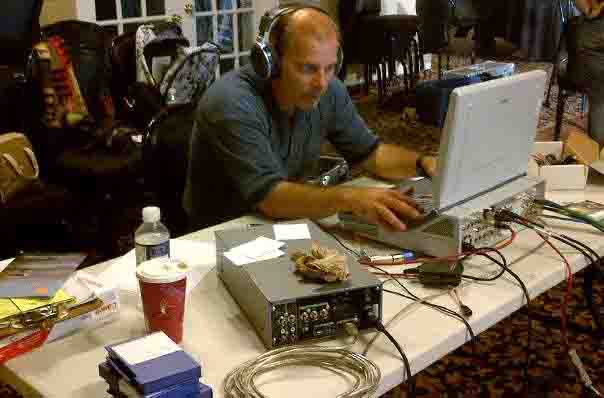
No budget also means, no set, soundstage or decoration budget. What I learned is how to make things look a professionally produced as any other channel on the dial. I had to be a jack of all trades. Need a crane for that shot? Green screen? A camera dolly? Not going to happen. I had to come up with ways to write around that and be creative at shoots to make something worth your time to watch.
I also learned, and it took some time, writing for a book, a newspaper, television or radio all have the same storytelling aspects, but are different from each other. Show, don’t tell is a great philosophy for movie making that just doesn’t work for most television programs. In a newspaper, more people need to tell the things they can’t show, more so for a book. Radio has the biggest handicap. Of all the mediums there is less time to get the story told with as few words as possible. Have you ever noticed in radio they cover all the news (basically as headlines) as a half hour TV news program does in about 5 minutes – and you still fell like you learned something.
There is one other area I’ve been deeply interested in and devoted a lot of time to studying and enjoying. It’s like a coin with comedy on one side and politics on the other. Both involve writing and performance. I’m not going to get into it or we’re looking at two more installments and I think by now you’re ready for something else.
The Take Away
The bottom line is I’ve done everything there is to do to put a show on a stage, whatever form that stage takes. I know what it’s like having dedicated specialist staff through to no one but myself to pull something off. I’ve done it to an exacting level where there’s been money to do things, and I’ve kept the standard when there is no money. I’ve performed as one of many, and all by myself. I know what it’s like to perform for nobody, and for thousands. I’ve heard tens of thousands roar, and crickets. I don’t say those things to brag.
Those things are what helps me empathize with our artists. When I say Mariposa Arts Theatre, or the Orillia Silver Band, the Cellar Singers, or the cream of our visual artists are performing at astonishingly high levels it’s because know what it takes and I’ve also seen the brand names doing no better. When things aren’t as good as can be with the resources at hand my style is not to trash the effort like so many other reviewers do, I’d much rather pull something from my experience and send a message through my reviews which will be useful to up the game quickly and without breaking the bank.
I am the luckiest person on the planet to have such a talented bunch of performers to enjoy, to have the chance to see those with promise coming along, and to then get to tell others about my experience watching a show, listening to band, or forgetting to move on in a gallery so someone else can look. I couldn’t do the telling part well without the weird and varied experience across so many disciplines.
![]()

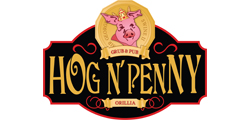

![]()
Mariposa Stories
Dennis Rizzo and Ross Greenwood, editors and publishers of the second volume of Mariposa Exposed want some really short, 100 words approximately, stories from you about anything you can be the voice of during this period of finding out – who those people are in your home -where you put the house keys 5 years ago and couldn’t find them – and ‘you know those people next door? No, do you know them?” Send them to me at johnswartz@orilliapronet.com with the subject line – My Story for Mariposa.
(Photos Supplied) Main: Photo by Nattanan Kanchanaprat / Pixabay


